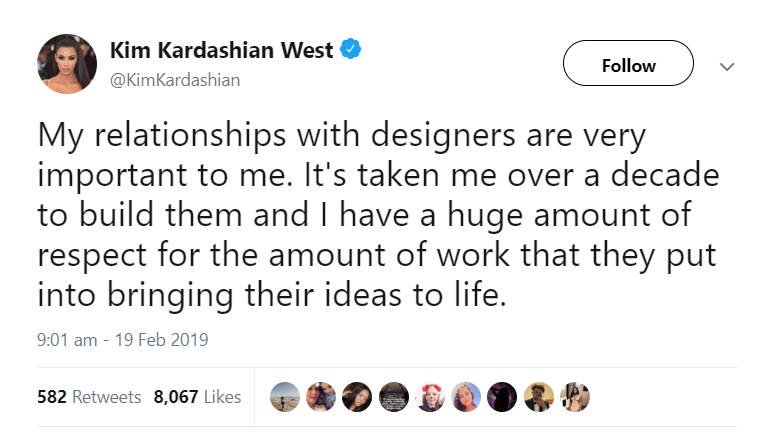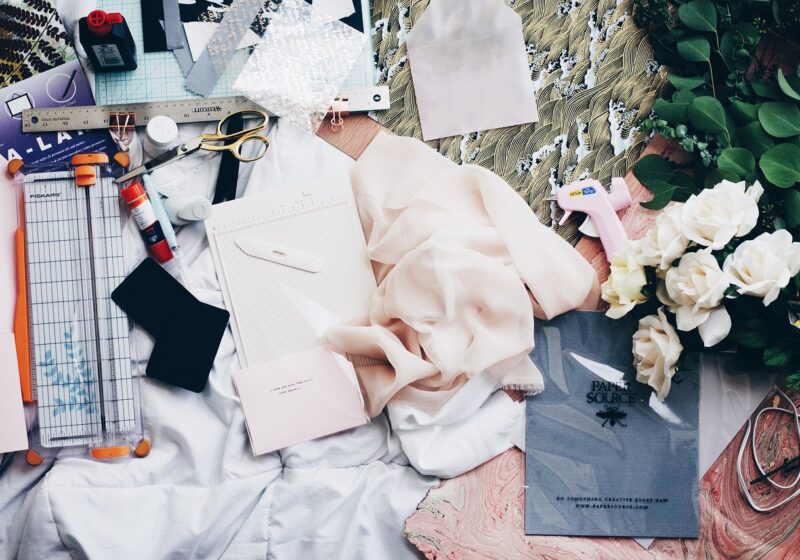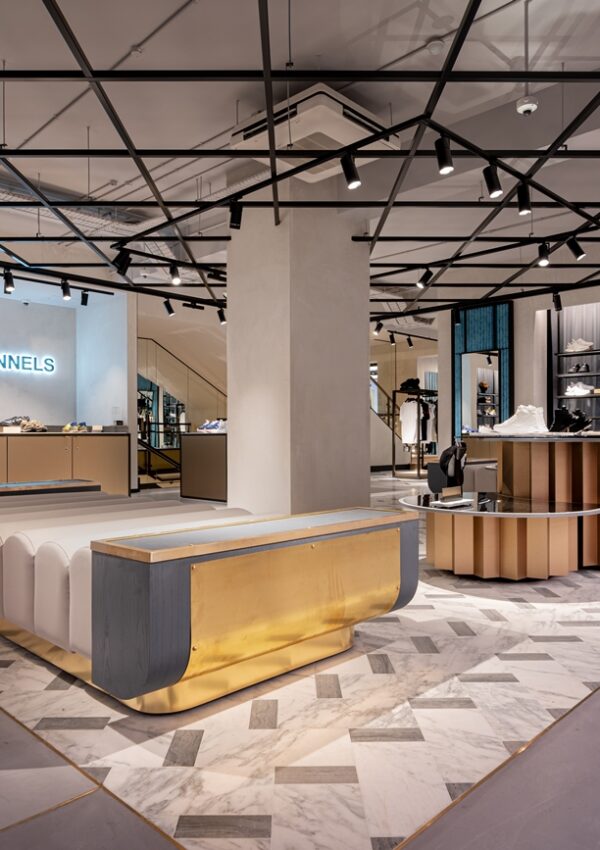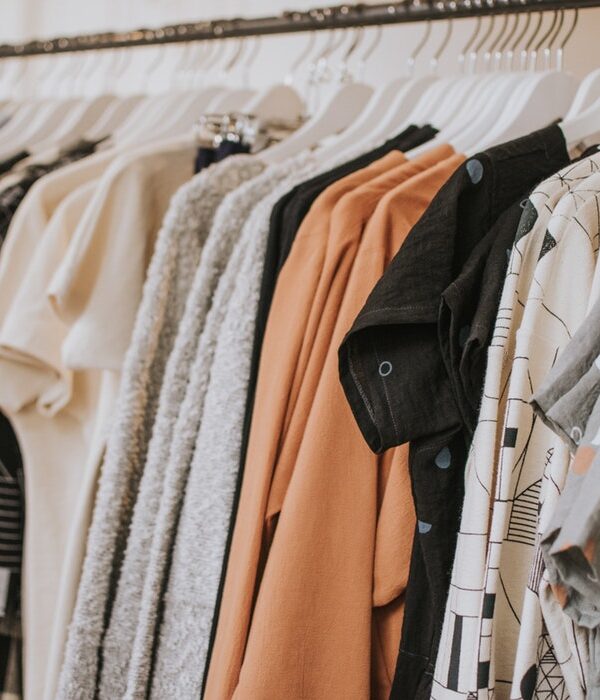As Kim Kardashian-West calls out fast fashion brands for stealing her designer looks, we discuss the moral dilemma of is it OK for these brands to rip off designer clothing?


This week Kim Kardashian-West posted a string of tweets condemning the fast fashion brands who make a living off stealing high end designers looks. The tweets have received thousands of likes already and a range of replies, ranging from praising agreement to critical backlash, have surfaced to create a conversation on whether it is acceptable for fast fashion brands to blatantly copycat celebrities designer looks.


The argument started when Kim first posted an instagram photo, showing off a dress she’d had made by Kanye and had yet to wear. In the post Kim pleads “Going through old fitting pics & found this gold look that Kanye made for me for my Miami trip last summer (I went w the neon vibes instead) P.S. fast fashion brands, can you please wait until I wear this in real life before you knock it off?”
This lead to an incredibly tongue-in-cheek retort from Manchester fashion brand Missguided who hit back hours later with a post stating: “The devil works hard but Missguided works harder. Kim Kardashian you’ve only got a few days before this drops online.” Whether serious or not it’s hardly the first time the brand, or others, has ripped off Kim’s style as soon as she’s worn it.
It doesn’t just stop at fashion though. Missguided also reposts Kim’s Instagram snaps, adding their own logo on for good measure. The brand even stamped their logo on a past Twitter post of Kim’s ‘break the internet’ Paper Magazine cover. The site has a whole section of it’s site dubbed ‘Crushin on Kim K’. There are numerous ‘Dress like Kim Kardashian blog posts featuring images of Kim’s looks with links to shop their cheaper versions online. It isn’t just Missguided though as Pretty Little Thing, Boohoo and Fashion Nova are all guilty of utilising Kardashian’s star power to boost their own brands.
It can be argued that ‘that’s how fashion’ works but in reality it isn’t. The trickle down effect we see as consumers features more elements of change. High street designers should be inspired by their high end counterparts, not taking the design literally and reproducing it in cheaper fabrics.
Yes, we can’t all afford the price tag of clothes straight off the catwalks of London Fashion Week, but that doesn’t give permission for us to enable multi-million pound companies to profit from lazy fashion design. It breeds a culture of style where identikit social media influencer types fill your newsfeed with the same boring look time-after-time. Whether the flavour of the month is faux-Yeezy perspex heels or nondescript chunky trainers a la Balenciaga, we should be embracing the beauty of independent style.
On the flip-side, there has been argument that these fashion powerhouses rip off their designs from aspiring students. Where this may be the case, it is of course not acceptable either. But should an ‘eye for an eye’ be the mantra here?Is being copied the penance for copycatting?
The final point is the overall sustainability of these companies. They are producing designer ‘inspired’ items for a small fraction of the cost. It may be purse friendly to the average Brit consumer but the cheap cost to us can come at a price from elsewhere. Low wages and poor working conditions are usually the price paid for a quick turnaround dress in the fast fashion industry and many fast fashion companies have previously been exposed for exploiting workers to ensure costs stay low and margins high. This is not to say all endorse this practise however.
The scrimp on quality can produce a very poor product as a result. The recent ‘caterpillar’ tube dress that could barely fit the girls leg, the jeans than ran so long a woman on stilts couldn’t fit them, the list goes on. To have a product be ripped straight off the red carpet and delivered to your doorstep in a matter of weeks there simply has to be a sacrifice in quality. In the rat race to ‘copy Kim’s dress first’ you can’t afford to waste time developing your product to a higher standard.
Wherever you stand on the argument, it is clear the celebrity influence is a powerful one and this is something brands recognise as a key ingredient to building and targeting an audience. The borrowing of outfits, personas and images of celebrities isn’t something we’ll see slowing anytime soon. If it sells you can bet the brands will get behind it.
Images sourced from Twitter





